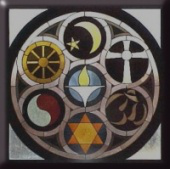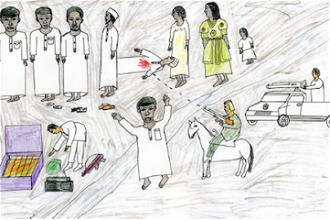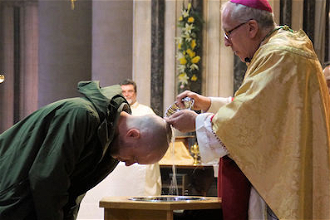New study shows RE is 'a valued subject'

New research among young people, including school leavers and those in full time education, indicates that Religious Education (RE) is a valued subject that leaves a lasting impression on those who study it. This timely research comes as the government sets out its Schools White Paper, calling for a return to traditional humanities-based subjects.
The study, released this morning, was commissioned by the RE Council of England and Wales (REC), and involved 1,000 young people aged between 16 and 24 years. It found that 80 per cent of respondents thought studying RE could promote better understanding of different religions and beliefs. This figure rose to 83 per cent amongst those who had studied RE at GCSE and was consistently higher for young women (85 per cent among the 19-21 year olds). There was notable support for this sentiment from all religions and beliefs, including 77 per cent of those who said they were atheists.
Professor John Howson, former government advisor and managing director of Education Data Surveys said: “This is an authoritative survey that clearly demonstrates the key place of Religious Education in the school curriculum. In our increasingly diverse world, it is important that young people have the opportunity to understand the nature of faith and belief in society. It is very encouraging that 83 per cent of those who took a GCSE felt that studying Religious Education in schools can help to promote a better understanding of different religions and beliefs up to eight years after taking the course.”
RE lessons are part of every school’s core curriculum and a majority of students go on to choose to take a GCSE in RE as one of their humanities subjects. Respondents were asked if they had been positively influenced by studying RE at school; those who had taken a GCSE were more likely to have been positively influenced.
Dr Brian Gates, Emeritus Professor of Religious and Moral Education at the University of Cumbria and chair of the REC added:
“Our research has shown RE has a measurable impact on those who study it; RE in schools shouldn’t be viewed as controversial or a minefield but an essential part of the humanities mix. RE is a rigorous academically based subject that will equip and inform future generations about the origins and meanings of the different beliefs, ethics and opinions found in Britain and around the world.”
Today RE lessons explore different religions and beliefs as well as allowing children and young people the opportunity to discuss and question accompanying moral and social responses. The study asked young people what they remembered about their RE lessons at school. The most popular memory was learning about several different religions, the second was debates on right and wrong.
The memories of RE were consistent across the group, with 57 per cent of the younger 16-18 year old age group remembering debates on right and wrong, compared with 42 per cent of the 19-24 group, perhaps reflecting an increased focus on moral
and ethical issues.
The sample was a representative cross-section of all religions and beliefs. Among them, only 32 per cent disagreed with a statement that there should be more effective teaching about Christianity so they can better understand English history, culture and society.
Gates concludes: “This current and topical study shows RE is relevant to young people today and has a lasting impact on them. The REC is calling for the subject remain a statutory part of the school curriculum, alongside other humanities such as History and Geography.”
In response to the statement, Dr Oona Stannard, head of the Catholic Education Service of England and Wales, said: "The contents of today's statement from the RE Council about young people and Religious Education confirms what many of us have long known. Religious Education (RE) is a crucially important subject in the curriculum and pupils recognise this and its importance to their lives. They want to study RE.
"It is in RE that pupils have the opportunity to learn about the importance of faith and belief both to those of faith and in the wider terms of its impact on society, cultures and life style. RE is the subject where pupils engage in the larger, philosophical questions of life and, as the RE Council survey has shown, have the space to discuss issues of right and wrong. Done well, RE also helps young people to make more sense of history and to better understand English literature.
"We must listen not only to what young people have told us about the importance of RE, but also to what other evidence and common sense tells us - Religious Education is crucial to individuals' development and contributes to the well being of society.
"I hope that the RE Council's research will be a wakeup call for Government and Ministers as they plan their strategies to raise standards and to review the curriculum. The omission of RE from the proposed English Baccalaureate is a blunder, but I hope that Government will have the grace to acknowledge this as a mistake that can easily be rectified."
Source: RE Council of England and Wales (REC)/CES





















